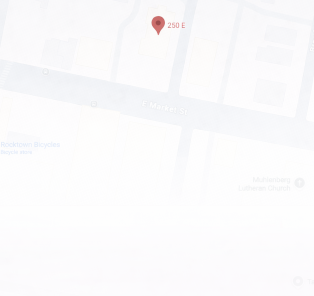Understanding defenses in motor vehicle injury cases can help plaintiffs see the big picture of their case. Before your Virginia Personal Injury Lawyer brings your case, it is important to examine the possible defenses to your case. We will look at three major defenses to motor vehicle injury claims: contributory negligence, sudden emergency and sudden medical emergency, and unavoidable accident.
Contributory Negligence
Virginia is one of only a handful of states that follows the defense known as “contributory negligence.” Under this legal defense, an injured party can be prevented from recovering any money for their claim if they were even 1% at fault for causing the incident that caused their injuries. So, for example, if an injured person was speeding at the time of a crash and a jury determines that the injured person’s excessive speed contributed to the crash, the jury can apply the doctrine of contributory negligence and not let the injured party recover anything for their injuries. This could be true even if the defendant driver was 99% at fault for causing the crash.
Although this sounds harsh and can be incredibly harsh, it is important to know that there are exceptions to this defense. It may be the case, for example, that the injured party was doing something negligent but that their negligence did not play a part in causing the crash that occurred. Similarly, Virginia recognizes a legal doctrine known as the “Last Clear Chance Doctrine.” That legal doctrine can help rescue an injured plaintiff who unquestionably contributed to their own crash and injuries. If the defendant saw the injured party before the crash and could have taken some steps to avoid the incident but failed, it is possible that the Last Clear Chance doctrine could come into play.
In any event, it is important for injured parties to not avoid seeing an attorney merely because they are sure that they did something to contribute to the accident that caused their injuries. There could be a legal exception to contributory negligence that applies, and that exception may not be easily apparent to an unexperienced attorney.
For a legal consultation with a personal injury lawyer, call (434) 817-3100
Sudden emergencies and sudden medical emergencies
The sudden emergency defense is one that arises when a defendant driver claims that weather, road conditions, or something else happens that causes a crash that was not possible to avoid. In a nutshell, the defendant is contending that the crash that occurred was caused by something other than their own negligence. This defense exists in Virginia but it is not only that will apply in many cases.
It may seem intuitive that to apply this doctrine, the emergency must actually be “sudden.” But there will always be debate about when a crisis is sudden. Any situation where a driver is aware of potential peril and dangers can be expected would not be “sudden.” In addition, a driver will be aware of conditions and obstacles that are reasonably foreseeable to them based on common sense.
An example of an emergency that would not be considered sudden could include weather. If a driver is driving during rain on a wet road, it would be reasonable for him to assume there could be a standing water that puddles on the road ahead. If he were to drive into that puddle, lose control, and crash, this would not be considered a sudden emergency. This was actually a description of the facts in Herr v. Wheeler, 272 Va. 310 (Va. 2006), a 2006 case before the Supreme Court of Virginia. There, the Supreme Court concluded that standing water on a roadway as a result of a storm is a common occurrence. That means that a driver cannot claim that they lost control after hitting a puddle and then claim that they faced an emergency.
A related doctrine to sudden emergency is the sudden medical emergency doctrine. Under this legal doctrine, a defendant driver who causes a crash may try to claim that they lost control of their vehicle due to a sudden and unexpected medical event. Based on the Supreme Court of Virginia’s decision in Hancock-Underwood v. Knight, 277 Va. 127 (Va. 2009), this defense requires a defendant driver to show that a medical event over took his ability to drive his vehicle and that the medical condition was unexpected.
We have faced the sudden medical emergency defense in several cases, and we have always defeated it. After doing some digging, we have always found that the defendant driver either knew that he or she had a medical condition that could cause them to lose consciousness, or, alternatively, that driver felt ill in the moments leading up to the crash that occurred. This defense typically arises in trucking cases, so it is important to have knowledgeable and skilled legal counsel for such cases.
Assumption of the Risk
In certain Virginia personal injury actions, such as pedestrian collisions, intersection collision cases, and others, the defense will attempt to raise the assumption of the risk defense. This defense contends that the plaintiff recognized the risks of engaging in certain conduct but they nevertheless participated despite knowing these risks.
Unavoidable accidents
There is rarely an accident devoid of fault, so the doctrine of unavoidable accidents is rarely applied. However, this defense is still an important one to understand in case it applies to your case. In this defense, the injury occurred by an accident that happened by chance, and could not have been avoided even by exercising due care.
An example of this would be a brake system failing on a parked car and causing a motor vehicle to roll into another parked car even though the brake system was engaged. If there had been no previous signs that the brake system would malfunction, the driver would have no way of knowing that this accident could have occurred. The driver exercised due care by engaging the brakes, but, without warning to the driver, the brakes did not function properly.
Recover the damages you deserve
The caring and experienced legal team at MartinWren, P.C. Attorneys at Law understands what you are facing with your personal injury claim. The Virginia Personal Injury Lawyers at MartinWren are available to help you recover what you deserve. For more information, contact us today to set up a free consultation.
Call (434) 817-3100 or complete a Case Evaluation form




